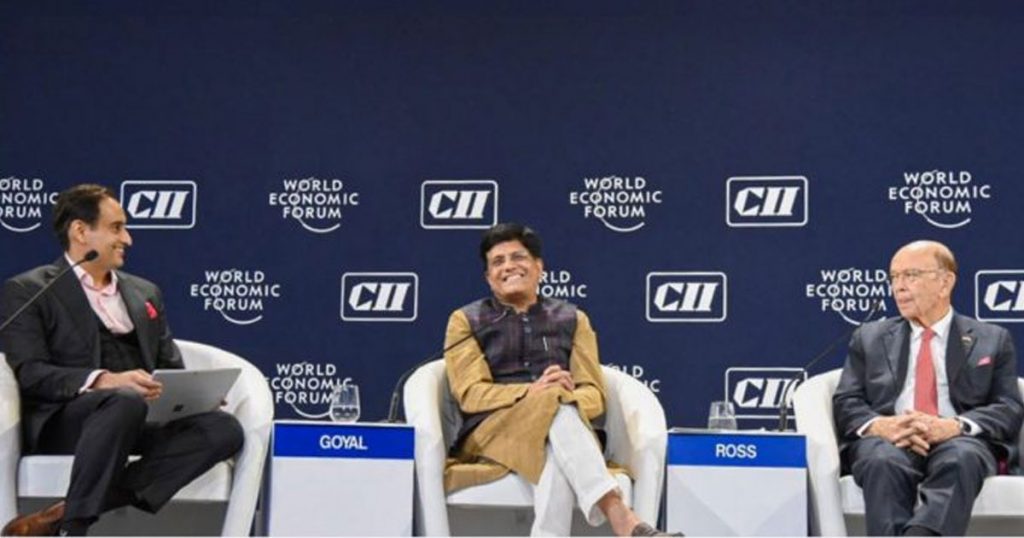
Measure to combat the gloomy phase of Indian economy was discussed in the World Economic Forum’s annual India Economic Summit. As per the discussion held in the event, abbreviating just the corporate taxes will not serve the purpose.
The growth rate of the Indian economy has declined to 5% in the April-June quarter, which is the lowest in the last six years. Other latest data such as GST collection & core sector output has also been negative which is a clear call for instant measures by the government.
The total GST collection of Rs 91,916 in September is the least figure among that of the last 19 months whereas the core sector output depicted the highest downturn of last more than 4 years in August with a decline by 0.5%.
The participants of the event, started in Delhi on Thursday with the joint effort of WEF and Confederation of Indian Industry, do not perceive that lowering down the corporate taxes will be able to restore the economy. They instead suggest for taking more measures & incentives such as cut down in income tax to invigorate the demand.
“Reduction in the corporate tax rate would be good but personal tax rate should also be cut down as the slowdown in demand is now clearly visible,” Adi Godrej, chairman of Godrej Group stated. “Government should provide more stimulus even if it means increasing the fiscal deficit,” he added.
Government proposals to revive the Indian economy from a six-year low of 5% in the April-June quarter includes blunt cut down in the corporate tax rate from 30% to 22%. The new tax rate at 15% for startups in the manufacturing sectors is also a part of the measures recommended.
Although the drop off in taxes will lead to revenue loss for the government but it will certainly be a financial booster of Rs 1.45 lakh crore to the Indian economy.
Experts from industries are pressing pedals for more reformation and incentives, as according to them, alterations in taxes are not enough to enliven the Indian economy & consumers from a depressing phase.
Gautam Kumra, managing partner at McKinsey also laid stress on different measures reformations to bolster the efficiency and competitiveness of India. He said, “Taxation is an important piece that will help India become competitive, but there are other aspects too including land, labour and financial sector reforms,”.
Read Also: All About Proposal Made for Income Tax Slabs & Rates by Task Force
Reformation for the startups was also underlined by some participants in the event. According to them, the government should focus on the startup ecosystem and adapt a mechanism which will help them access the capital requirement easily.
“Becoming a $5 trillion economy would not be possible without innovation,” statement made by Vani Kola, founder of early-stage venture capital Kalaari Capital. “Hence, there is a need for structural reforms for startups to access capital,” she added.
Measures from the Reserve Bank of India are also anticipated to be announced soon. RBI may further slash the policy rates while reviewing its monetary policy.
Uday Bansali, president (financial advisory) at Deloitte said, “The mood is optimism with caution and there is more need for transformation,”. He also said,. “I feel we will be doing well in the long run, but there are some hurdles in the short run that needs to be addressed.”
Borge Brende, a member of WEF’s managing board has an optimistic attitude towards the fast revival of Indian economy.









